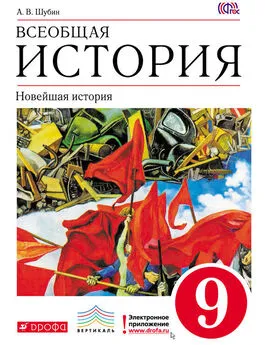Гай Стэндинг - Прекариат: новый опасный класс
- Название:Прекариат: новый опасный класс
- Автор:
- Жанр:
- Издательство:Литагент «Ад маргинем»fae21566-f8a3-102b-99a2-0288a49f2f10
- Год:2014
- Город:Москва
- ISBN:978-5-91103-209-8
- Рейтинг:
- Избранное:Добавить в избранное
-
Отзывы:
-
Ваша оценка:
Гай Стэндинг - Прекариат: новый опасный класс краткое содержание
Книга британского социолога Гая Стэндинга исследует один из самых болезненных вопросов современности – повсеместное распространение нового класса, который, с одной стороны, играет исключительно важную роль в производстве как материальных, так и нематериальных ценностей, а с другой – оказывается лишенным большинства социальных и политических прав и гарантий: участия в выборах, стабильной зарплаты и страхового медицинского обслуживания, оплачиваемого отпуска, доступа к образованию и т. п. Прекариат (от англ. precarious – ненадежный) неуклонно растет численно и включает в себя все новые страны и формы социальной жизни; его черты можно увидеть и в российской повседневности (временные рабочие-мигранты, стажеры, фрилансеры, работники креативных индустрий). Осознать заботы и проблемы «нового опасного класса» и понять возможные пути их решения – одна из главных задач нашего времени.
Прекариат: новый опасный класс - читать онлайн бесплатно ознакомительный отрывок
Интервал:
Закладка:
Mayhew, L. (2009), Increasing Longevity and the Economic Value of Healthy Ageing and Working Longer , London: Cass Business School, City University.
McGovern, P., Hill, S. and Mills, C. (2008), Market, Class, and Employment , Oxford: Oxford University Press.
Mead, L. (1986), Beyond Entitlement: The Social Obligations of Citizenship , New York: Free Press.
Mitchell, T. (2010), ‘Honda Presses Staff not to Strike’, Financial Times , 31 May, p. 1.
Morrison, C. (2010), ‘The Relationship between Excessive Internet Use and Depression: A Questionnaire-Based Study of 1,319 Young People and Adults’, Psychopathology , 43(2): 121–6.
Mouer, R. and Kawanishi, H. (2005), A Sociology of Work in Japan , Cambridge, UK: Cambridge University Press.
Nairn, G. (2009), ‘Telework Cuts Office Costs’, FT Report – Digital Business , 12 March, p. 4.
National Equality Panel (2010), An Anatomy of Economic Inequality in the UK: Report of the National Equality Panel, London: Centre for Analysis of Social Exclusion and the Government Equalities Office.
Needleman, S. (2009), ‘Starting Fresh with an Unpaid Internship’, Wall Street Journal , 16 July, p. D1.
Nink, M. (2009), ‘It’s Always about the Boss’, Gallup Management Journal , 25 November.
Obinger, J. (2009), ‘Working on the Margins: Japan’s Precariat and Working Poor’, Electronic Journal of Contemporary Japanese Studies , 25 February.
OECD (2010a), International Migration Outlook 2010 , Paris: OECD.
OECD (2010b), A Profile of Immigrant Populations in the 21st Century: Data from OECD Countries , Paris: OECD.
Paine, T. ([1795] 2005), Common Sense and Other Writings , New York: Barnes & Noble, pp. 321–45.
Parliamentary and Health Service Ombudsman (2010), Fast and Fair? A Report by the Parliamentary Ombudsman on the UK Border Agency (fourth report), London: The Stationery Office.
Peel, Q. (2010), ‘German Popular Perception Fuels Furious Debate on Immigration’, Financial Times , 2 September, p. 4.
Pigou, A. C. ([1952] 2002), The Economics of Welfare , New Brunswick, NJ: Transaction Publishers.
Polanyi, K. ([1944] 2001), The Great Transformation: The Political and Economic Origins of Our Time , Boston, MA: Beacon Press.
Reeves, R. (2010), ‘Why Money Doesn’t Buy Happiness’, Observer Magazine , 25 April, p. 48.
Reeves, R. and Collins, P. (2009), The Liberal Republic , London: Demos.
Reidy, G. (2010), ‘Young, Single and Labouring Round the Clock’, NYT Business , 7 September, p. 13.
Richtel, M. (2010), ‘Hooked on Gadgets, and Paying a Mental Price’, New York Times , 7 June, p. 1.
Rigby, R. (2010), ‘The Careerist: What You Know Has a Shorter and Shorter Lifespan’, Financial Times , 22 February, p. 12.
Royle, T. and Ortiz, L. (2009), ‘Dominance Effects from Local Competitors: Setting Institutional Parameters for Employment Relations in Multinational Subsidiaries: A Case from the Spanish Supermarket Sector’, British Journal of Industrial Relations , 47(4): 653–75.
Saltmarsh, M. (2010), ‘Far from Home and Miserable in Sweden’, International Herald Tribune , 8 September, p. 3.
Sawhill, I. and Haskins, R. (2009), Creating an Opportunity Society , Washington, DC: Brookings Institution.
Schachar, A. (2009), The Birthright Lottery . Harvard, MA: Harvard University Press.
Sen, A. (1999), Development as Freedom , Oxford: Oxford University Press.
Sennett, R. (1998), The Corrosion of Character: The Personal Consequences of Work in the New Capitalism , New York: Norton.
Shildrick, T., MacDonald, R., Webster, C. and Garthwaite, K. (2010), The Low-Pay, No-Pay Cycle: Understanding Recurrent Poverty , York: Joseph Rowntree Foundation.
Si, L. (2009), The Ant Tribe: An Account of the Agglomerate Settlements of University Graduates , Guilin: Guangxi Normal University Press.
Simonian, H. (2010), ‘Adecco Rejects Slowdown Fears’, Financial Times , 12 Au gust, p. 11.
Sklair, L. (2002), Globalization: Capitalism and Its Alternatives , Oxford: Oxford University Press.
Soysal, Y. (1994), The Limits of Citizenship , Chicago, IL: University of Chicago Press.
Standing, G. (1989), ‘Global Feminization through Flexible Labor’, World Development , 17(7): 1077–95.
Standing, G. (1990), ‘The Road to Workfare: Alternative to Welfare or Threat to Occupation?’, International Labour Review , 129(6): 677–91.
Standing, G. (1999a), ‘Global Feminization through Flexible Labor: A Theme Revisited’, World Development , 27(3): 583–602.
Standing, G. (1999b), Global Labour Flexibility: Seeking Distributive Justice , Basingstoke: Macmillan.
Standing, G. (2009), Work after Globalisation: Building Occupational Citizenship , Cheltenham, UK, and Northampton, MA: Edward Elgar.
Standing, G. (2010), ‘Global Monitor: The International Labour Organization’, New Political Economy , 15(2): 307–18.
Standing, G. (2011), ‘Responding to the Crisis: Economic Stabilisation Grants’, Policy & Politics , 39(1): 9–25.
Tabuchi, H. (2010), ‘Japan Accused of Violating Migrant Workers’ Human Rights’, New York Times , 21 July, p. B1.
Tavan, C. (2005), Les immigrés en France: une situation qui évolue [Immigrants in France: An Evolving Situation] , INSEE Premiére, No. 1042, September.
Thaler, R. and Sunstein, C. (2008), Nudge: Improving Decisions About Health, Wealth, and Happiness , New Haven and London: Yale University Press.
Thompson, E. P. (1967), ‘Time, Work-Discipline and Industrial Capitalism’, Past and Present , 38(1): 58–97.
Tomkins, R. (2009), ‘The Retreat of Reason’, FT Weekend , 23–24 May, pp. 24–29.
Tulgan, B. (2009), Not Everyone Gets a Trophy: How to Manage Generation Y , San Francisco, CA: Jossey-Bass.
Turque, W. (2010), ‘D. C. Students Respond to Cash Awards, Harvard Study Shows’, Washington Post , 10 April, p. B1.
Uchitelle, L. (2006), The Disposable American: Layoffs and Their Consequences . New York: Alfred Knopf.
Ueno, T. (2007), ‘“Precariat” Workers Are Starting to Fight for a Little Stability’, Japan Times Online , 21 June.
UKBA (2010), Points Based System Tier 1: An Operational Assessment , London: The Stationery Office.
Virtanen, M., Ferrie, J. E., Singh-Manoux, A., Shipley, M. J., Vahtera, J., Marmot, M. G. and Kivimдki, M. (2010), ‘Overtime Work and Incident Coronary Heart Disease: The Whitehall II Prospective Cohort Study’, European Heart Journal , 31: 1737–44.
Wacquant, L. (2008), ‘Ordering Insecurity: Social Polarization and the Punitive Upsurge’, Radical Philosophy Review , 11(1): 9–27.
Weber, M. ([1922] 1968), Economy and Society , Berkeley, CA, and Los Angeles, CA: University of California Press.
Wilkinson, R. and Pickett, K. E. (2009), The Spirit Level: Why More Equal Societies Almost Always Do Better , London: Allen Lane.
Willetts, D. (2010), The Pinch: How the Baby Boomers Took Their Children’s Future – and Why They Should Give It Back , London: Atlantic.
Willsher, K. (2010), ‘Leaked Memo Shows France’s Expulsion of Roma Illegal, Say Critics’, Guardian , 14 September, p. 20.
Wong, E. (2009), ‘China Confronts Backlash from Its Mass Exports of Labor’, International Herald Tribune , 21 December, p. 16.
Working Families (2005), Time, Health and the Family , London: Working Families.
Wright, E. O. (ed.) (2006), Redesigning Distribution: Basic Income and Stakeholder Grants as Cornerstones for an Egalitarian Capitalism , London: Verso.
Zolberg, A. (1995), ‘Review of Y. Soysal, Limits of Citizenship’, Contemporary Sociology , 24(4): 326–9.
Благодарим Вас за то, что воспользовались проектом nemaloknig.info- приходите ещё!
Ссылка на эту книгу
Примечания
1
«Воспитатели» (нем. “Die fetten Jahre sind vorbei”) – фильм режиссера Ханса Вайнгартнера, вышедший на экраны в 2004 году. ( Здесь и далее примеч. ред.)
2
В переводе с английского означает «нестабильный», «неустойчивый».
3
От англ. salary – зарплата.
4
Впервые опубликована в США в 2006 г. под названием Dancing in the Streets: A History of Collective Joy. В 2009 году книга вышла в Великобритании под названием Smile Or Die: How Positive Thinking Fooled America and the World.
5
Названы так по номеру статьи Налогового кодекса США.
6
Тернер, Джонатан Эдер (Turner, Jonathan Adair) – британский бизнесмен, ученый, член Комитета по денежной политике Банка Англии, занимал должность председателя Управления по финансовому регулированию и надзору вплоть до роспуска этого органа в 2013 году. Также был председателем Пенсионной комиссии и Комитета по проблемам изменения климата.
7
Процентное отношение суммы социальной выплаты (например, пенсии, пособия по безработице и т. д.) к сумме заработка до вычета налогов за такой же период (например, за месяц).
8
Lehman Brothers Holdings, Inc.
9
Имеется в виду статья Джорджа Акерлофа «Рынок “ лимонов”: неопределенность качества и рыночный механизм», в которой рассматривается рынок подержанных машин, которые бывают двух видов: качественные и бессмысленные груды металла – «лимоны».
10
Американская федерация труда и Конгресс производственных профсоюзов.
11
Пока, к 2014 году, удалось сократить их до девяти.
12
В 1795 году в городе Спинхамленде была установлена минимальная заработная плата: «каждому бедному и трудолюбивому» человеку полагалось иметь три шиллинга на содержание себя и один шиллинг и шесть пенсов на каждого члена семьи. Если человек не зарабатывал таких денег, то он получал вспомоществования из средств, собранных в виде налога в пользу бедных.
Читать дальшеИнтервал:
Закладка:






